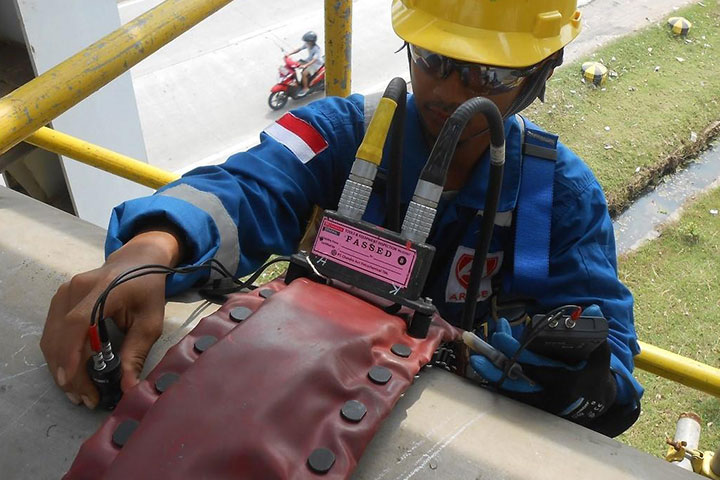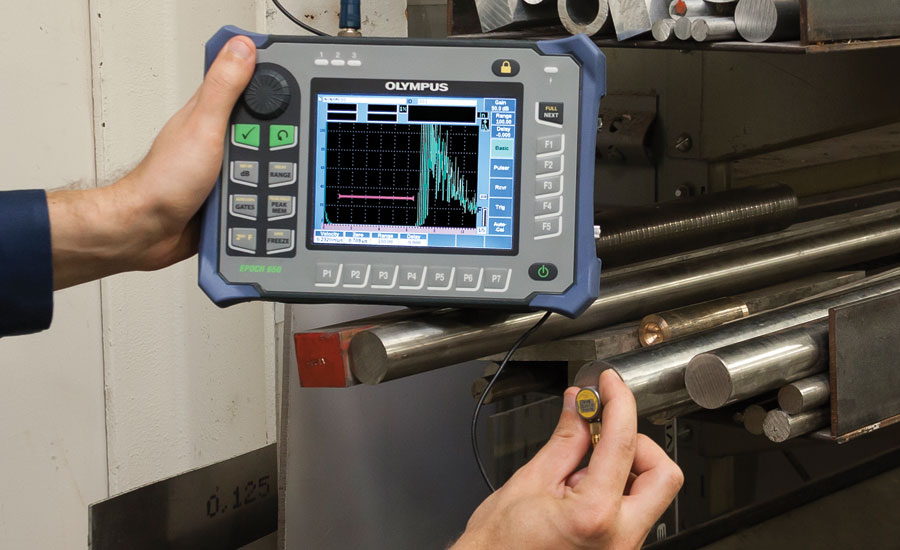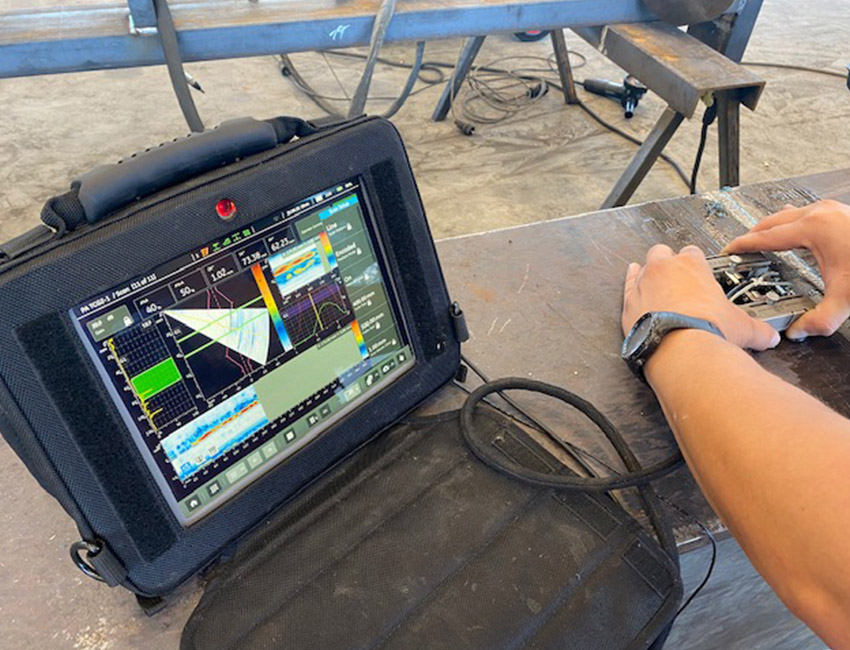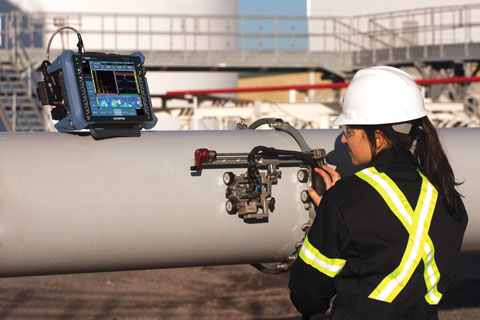Our Services
LONG RANGE ULTRASONIC TESTING (LRUT).

ALFF utilizes the new LRUT focus system that provides all the benefits of conventional Guide screening technology With the added feature of focusing sound energy into a specific region of the pipe to measure distribution of the corrosion around the circumference at a specific distance Test Long Lengths of pipe with 100% coverage of the pipe, identify areas of corrosion or erosion for
further evaluation The system is entirely computer controlled, data acquisition and display analysis being performed using a Lap top.
Teletest employs low frequency guided waves, operating just above audible frequencies, propagated from a ring of transducers fixed around the pipe. These low frequencies (in ultrasonic terms) are necessary to enable the appropriate wave modes to be generated. At these frequencies a liquid complaint between the transducers and the surface is not necessary. satisfactory ultrasonic coupling being achieved with mechanical or pneumatic pressure applied to the back of the transducers to maintain contact with the pipe surface. The uniform spacing of the ultrasonic transducers around the pipe circumference allows guided waves to be generated that propagate symmetncaly about the pipe axis. These may be visualized as a circular wave that Sweeps along the pipe. The whole of the pipe wall thickness is excited by the wave motion, the pipe acting as a wave guide- hence the term guided waves. The propagation of these guided waves is governed principally by the frequency of the wave and the material thickness.
We work with clients to integrate the flow of the customer experience across channels (e.g., face-to-face, telephone), opening up new lead sources, supporting sales for smaller
SHORT RANGE GUIDED WAVE ULTRASONIC TESTING (SRGWUT)
Is a technique which uses low frequency
sound waves to flood thin wall material and then reflect back at interfaces such as cracking or corrosion/pitting. Guided Wave can be used for tank floor inspection vessel inspection for detection of corrosion CUI detection for piping or corrosion on under pipe support.
The guided wave technique is to be used as a screening tool only as remaining wall thickness
measurements cannot be achieved. However, reflection distance can be measured with precise and accuracy. The technique is also being used to test for Corrosion under pipe supports,
Applications:
- Tank Floor Annular Plate Testing, Tank Dyke Piping
- Testing Concrete Coated
- Scan Under Vessel Supports, Testing Under Pipe
Interfaces, and similar difficult to access locations.

Phased Array Ultrasonic Testing (PAUT)
utilizes arrays of piezoelectric elements that are embedded in an epoxy base. The benefit of having such kind of array is that beam forming such as steering and focusing the beam front possible. This enables scanning patterns such as linear scan, sectorial scan and depth focusing scan to be performed. Ultrasonic phased array systems can potentially be employed in almost any test where conventional ultrasonic flaw detectors have traditionally been used.
Weld inspection and crack detection are the most important applications, and these tests are done across a wide range of industries including aerospace, power generation, petrochemical, metal billet and tubular goods suppliers, pipeline construction and maintenance, structural metals, and general manufacturing. Phased arrays can also be effectively used to profile remaining wall thickness in corrosion survey applications.
The benefits of PAUT are simplifying inspection of components of complex geometry, inspection of components with limited access, testing of welds with multiple angles from a single probe and increasing the probability of detection while improving signal-to-noise ratio.


Automated Corrosion Mapping (AUT)
Its an ultrasonic technique utilized to scan one hundred percent of a steel surface to locate, size and document damage associated with the
equipment being inspected. Applications include in-service scanning of vessels, tank walls, frac towers, drums, steel plate, in-line inspection validations and numerous other applications.
- The AUT system consists of a multi-channel digital meter, robotic scanning system, manual Scanner, multiple transducers and laptop with acquisition
- Its primary application is to collect and image data in real-time and to store this data in electronic format. Due to it’s repeatability continued monitoring of critical flaw growth
can be performed. Finally the ability to document and visually present the defect size and morphology is extremely important when communicating with the client and when supporting government reporting/compliance issues.
- Productivity: A two man crew using the automated ultrasonic testing (AUT) technique is capable of achieving nearly five-hundred square feet of surface area when performing corrosion mapping Minor Paint
- Software & Calculation: The software utilized with the corrosion mapping system allows for defect sizing of length, width, depth and orientation. The system also integrates remaining strength calculations (API 579, B31G).